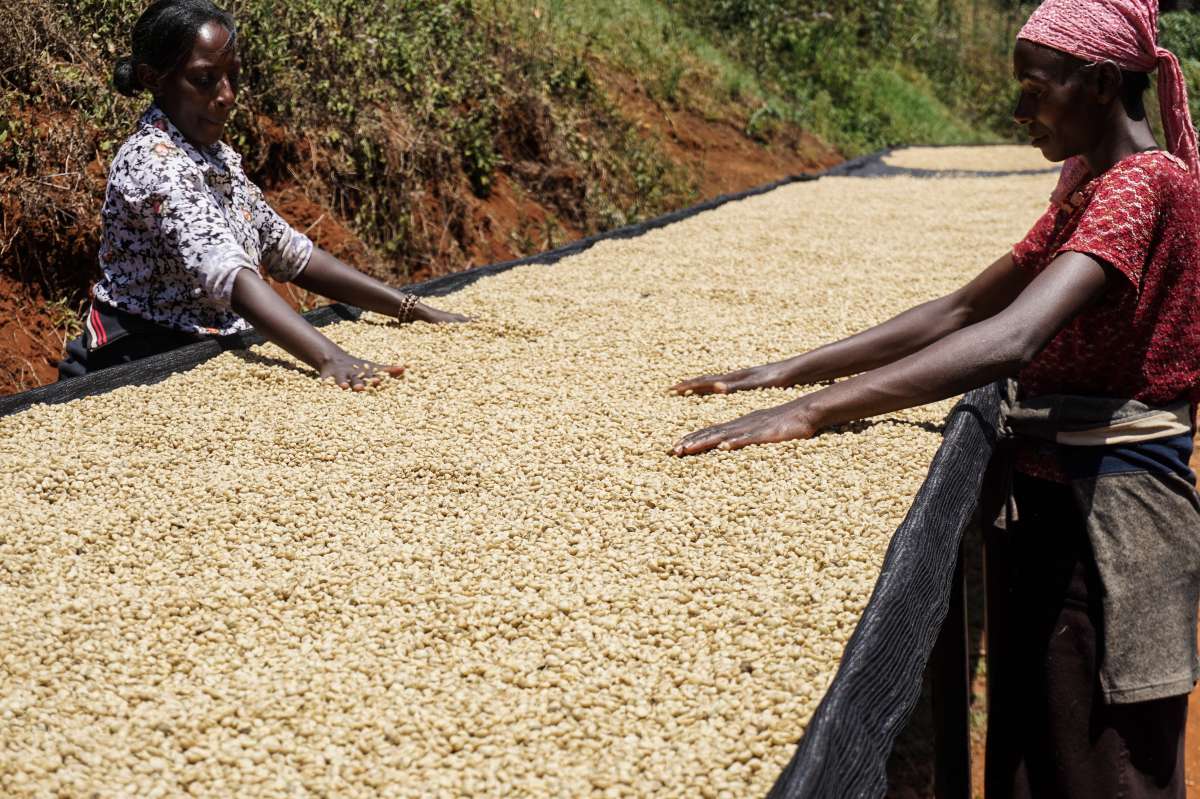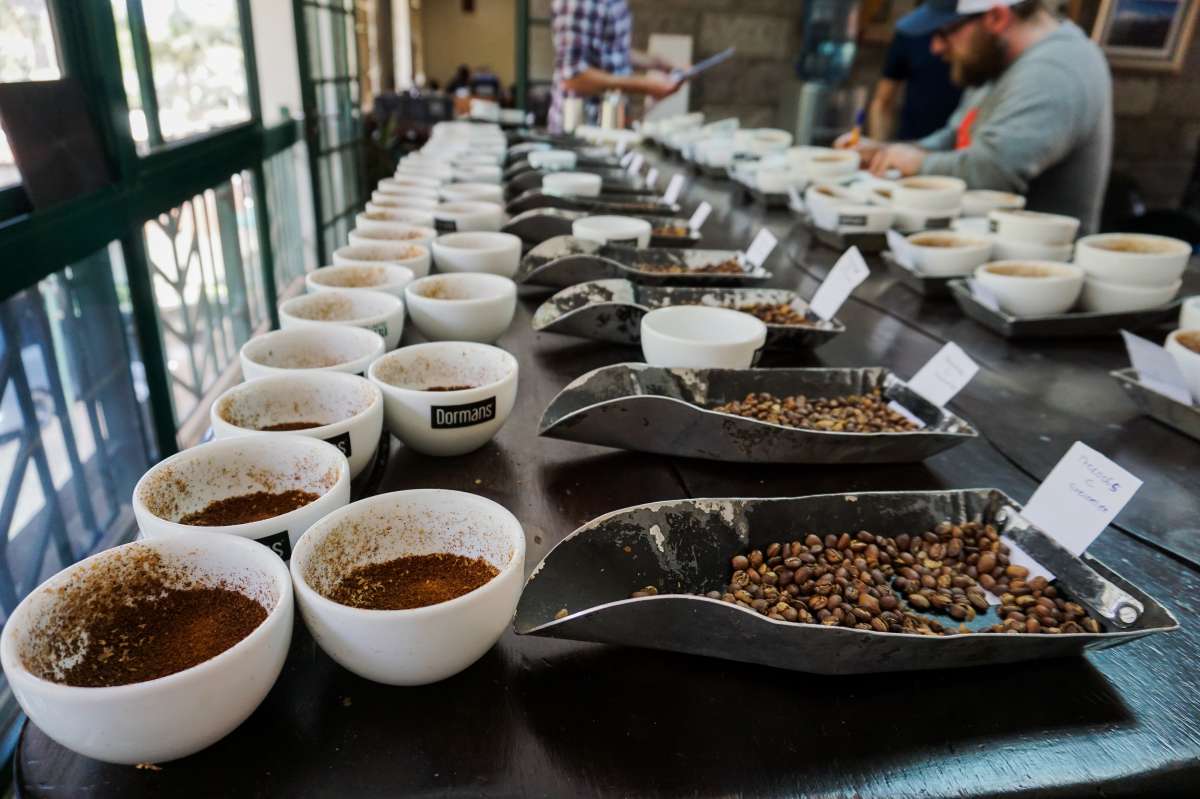kenya
New Ngariama Farmers Cooperative Society operates the Kiamugumo Factory,
which was founded in the 1970s. There are about 1,500 contributing members who
deliver cherry to the factory, each growing coffee alongside other crops on about
1/8th a hectare each, average.
The farmers bring their cherry to the factory for sorting and processing as soon as it
is picked: The coffee is depulped, then fermented underwater for 12–24 hours
before being washed four times and spread on raised beds for 9–13 days. The
factory leadership offers producers inputs on credit as well as cash advances to
assist with the season and incentivize coffee production and quality.
Coffee in Kenya is typically traceable down to the factory, or mill level: Most farmers
own between 1/8 to 1/4 of a hectare, and often grow crops other than coffee as
well, which means they rely on a central processing unit for sale and processing of
their coffee. Producers deliver in cherry form to a factory, where the cooperative
will sort, weigh, and issue payment for the delivery. The coffee is then blended with
the rest of the day's deliveries and goes on to be processed. Because of this
system, which serves many hundreds to several thoughts of smallholder farmers per factory, there is limited traceability down to the individual producers whose
coffee comprises the lots.
City skyline
Photo By: John Doe
Button











